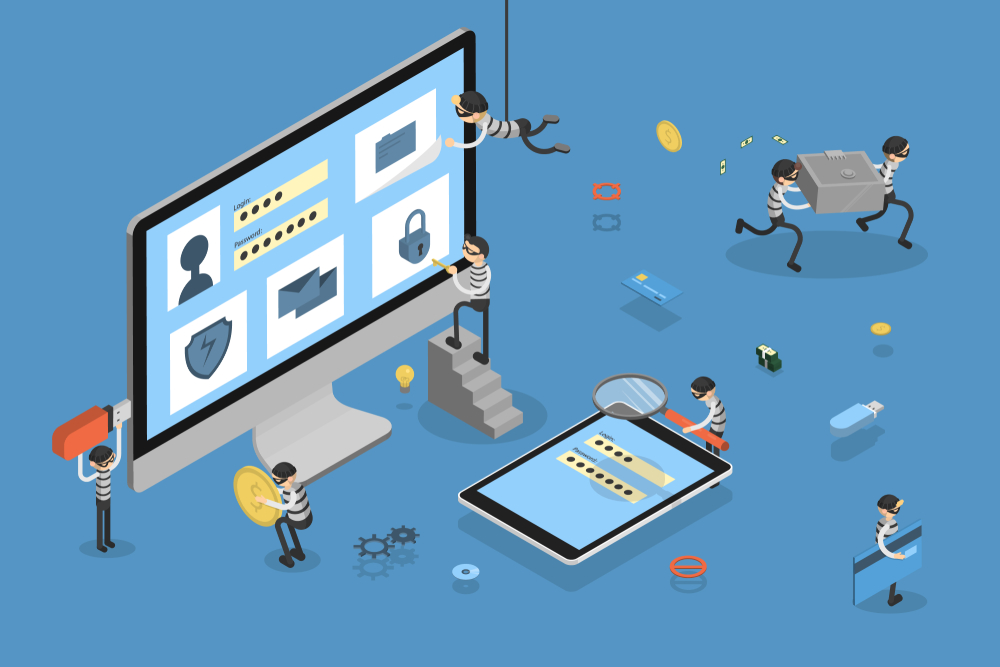Why Data Security Is Crucial for Businesses in the Digital Age
Why Data Security Is Crucial for Businesses: In today’s digital landscape, where data is the lifeblood of most businesses, ensuring its security is not just important—it’s essential. Data breaches, cyberattacks, and unauthorized access can lead to severe financial losses, reputational damage, and legal repercussions. Here’s why data security is crucial for businesses in the digital age.
1. Protection Against Cyber Threats
With the rise of cyberattacks, businesses are increasingly vulnerable to threats like ransomware, phishing, and malware. These attacks can compromise sensitive data, disrupt operations, and lead to significant financial losses.
- Example: A small business could lose thousands of dollars due to a ransomware attack that locks critical data until a ransom is paid.
2. Compliance with Regulations
Data protection laws, such as the General Data Protection Regulation (GDPR) in Europe and the California Consumer Privacy Act (CCPA) in the United States, mandate strict data security measures. Non-compliance can result in hefty fines and legal actions.
- Example: A company failing to comply with GDPR could face fines of up to €20 million or 4% of its annual global turnover, whichever is higher.
3. Maintaining Customer Trust
Customers trust businesses with their personal information, and any breach of this trust can have long-lasting effects. A data breach can lead to a loss of customer confidence, which is often difficult to rebuild.
- Example: A data breach at a retail company could cause customers to take their business elsewhere, fearing that their credit card information is not safe.
4. Preventing Financial Losses
Data breaches can be incredibly costly, not just in terms of immediate financial loss but also in terms of long-term business impacts. Costs can include legal fees, regulatory fines, and the cost of repairing systems and data.
- Example: The average cost of a data breach in 2023 was estimated at $4.45 million, a sum that could cripple a small to medium-sized business.
5. Protecting Intellectual Property
For many businesses, intellectual property (IP) is one of their most valuable assets. Whether it’s product designs, business plans, or proprietary software, safeguarding this information is vital to maintaining a competitive edge.
- Example: A tech company’s leaked product designs could give competitors an unfair advantage, potentially leading to a loss of market share.
6. Ensuring Business Continuity
Data security is also about ensuring that business operations can continue without disruption. In the event of a data breach, a company might face downtime, loss of data, and operational chaos.
- Example: A manufacturing company hit by a cyberattack might have to halt production, leading to significant revenue losses.

7. Enhancing Brand Reputation
A strong commitment to data security enhances a brand’s reputation. Customers, partners, and investors are more likely to engage with businesses that demonstrate robust data protection practices.
- Example: Companies known for their stringent data security measures are often perceived as more reliable and trustworthy.
8. Mitigating Insider Threats
Not all data breaches come from outside threats; some stem from within. Employees with access to sensitive information can intentionally or unintentionally cause data leaks. Implementing strong data security protocols helps mitigate these risks.
- Example: An employee accidentally sharing sensitive information on unsecured platforms could lead to a data leak that harms the company.
9. Facilitating Secure Remote Work
With the rise of remote work, ensuring that employees can securely access company data from various locations and devices is critical. Data security measures like VPNs, encrypted communications, and secure access controls are essential in this new work environment.
- Example: Without secure access, an employee working from a coffee shop could expose sensitive company data to hackers on an unsecured Wi-Fi network.
10. Supporting Long-Term Growth
Investing in data security is an investment in the future. As businesses grow and accumulate more data, having robust security measures in place ensures that this growth is sustainable and protected from potential threats.
- Example: A startup with strong data security practices is more likely to attract investors who see the company as a safe and viable long-term investment.
Conclusion
Why Data Security Is Crucial for Businesses: In the digital age, data security is not just a technical necessity but a fundamental aspect of running a successful business. It protects against threats, ensures compliance, maintains customer trust, and ultimately supports the long-term growth and success of the business. By prioritizing data security, companies can navigate the complexities of the digital world with confidence and resilience.
For more information on IT services and Why Data Security Is Crucial for Businesses solutions, visit NABCO IT Services.
Why Data Security Is Crucial for Businesses; For professional assistance with data security, contact us to ensure your organization is protected with the latest security measures.
Read more related articles to enhance your knowledge
What is Data Security? The Ultimate Guide
Why Data Security Matters: Protecting Your Information in a Digital World



